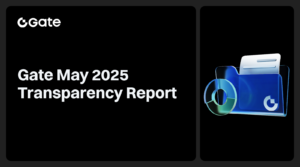
DeFi Scalibility and Security
The decentralized finance (DeFi) ecosystem has witnessed tremendous growth and innovation, offering users a wide range of financial services and opportunities. However, as DeFi protocols strive for scalability to accommodate increasing demand, it becomes crucial to strike the right balance between scalability and security. In this blog post, we will explore the trade-offs between scalability and security in DeFi and discuss strategies to achieve optimal outcomes.
Introduction
As DeFi protocols gain popularity and attract more users, scalability emerges as a critical factor to ensure seamless transactions and accommodate increased network activity. However, scaling solutions may introduce potential security vulnerabilities. It becomes essential to understand the trade-offs involved and implement strategies to mitigate risks while achieving scalability.
The Importance of Scalability in DeFi
Scalability is crucial for the long-term success of DeFi. It enables networks to handle a larger volume of transactions, increases user adoption, and improves user experience. By scaling efficiently, DeFi protocols can become more inclusive, reduce transaction costs, and offer greater accessibility to a broader user base.
Security Challenges in Scalable DeFi Solutions

1. Smart Contract Vulnerabilities
As DeFi protocols become more complex to accommodate scalability, the risk of smart contract vulnerabilities increases. Poorly written or audited smart contracts may expose the protocol and its users to potential exploits, leading to significant financial losses.
2. Network Congestion and Performance
Scaling solutions often involve off-chain transactions, layer 2 solutions, or sidechains. While these approaches can enhance scalability, they may introduce congestion and performance issues. Network congestion can potentially impact transaction finality, increase transaction fees, and affect the overall user experience.
3. Centralization Risks
In some cases, achieving scalability may require centralization, which goes against the decentralized nature of DeFi. Centralization introduces a single point of failure and increases the risk of hacking or manipulation by bad actors.
4. Regulatory Compliance and Privacy Concerns
Scalability solutions may need to strike a balance between compliance with regulatory requirements and preserving user privacy. Implementing compliance measures, such as Know Your Customer (KYC) processes, can conflict with the principles of decentralization and privacy that DeFi aims to uphold.
Strategies for Balancing Scalability and Security
To strike the right balance between scalability and security in DeFi, several strategies can be employed. These strategies aim to address the security concerns associated with scalability solutions while still achieving efficient network performance. Some of these strategies include:
1. Rigorous Smart Contract Audits and Formal Verification
Thorough smart contract audits by reputable third-party firms are crucial to identify and address potential vulnerabilities. Additionally, leveraging formal verification techniques can mathematically prove the correctness of smart contracts, enhancing their security.
2. Layered Security Measures
Implementing layered security measures helps mitigate risks associated with centralization. By distributing security responsibilities across multiple entities or nodes, the protocol becomes more resistant to single points of failure and potential attacks.
3. Embracing Decentralized Governance
Decentralized governance allows stakeholders to participate in decision-making processes, ensuring transparency and accountability. By involving the community in protocol upgrades and security-related decisions, DeFi protocols can harness the collective intelligence and expertise of participants.
4. Implementing Scalability Solutions with Security in Mind
When adopting scalability solutions, it is crucial to prioritize security from the outset. Designing and implementing these solutions with a strong security focus helps mitigate potential risks andvulnerabilities. Thoroughly evaluate the security implications of different scalability options and choose those that align with the protocol’s security requirements.
5. Continuous Monitoring and Security Upgrades
Regularly monitor the protocol for potential security risks and vulnerabilities. Implement mechanisms for prompt identification and remediation of security issues. Stay updated with the latest security best practices and incorporate necessary upgrades to ensure ongoing protection against emerging threats.
6. Collaboration and Knowledge Sharing
Encourage collaboration and knowledge sharing within the DeFi community. Foster open discussions about security challenges, share best practices, and collectively work towards enhancing the security of the overall DeFi ecosystem. Collaboration can help identify potential vulnerabilities and devise effective strategies to address them.
Tokenomics and Economic Security in Scalable DeFi
Discuss the importance of tokenomics and economic security in scalable DeFi solutions. Explore how the design of token economics, including supply mechanisms, incentives, and governance structures, can impact the security and stability of the protocol. Address considerations such as inflationary vs. deflationary models, token distribution, and the role of decentralized governance in maintaining economic security.
Privacy-Preserving Scalability Solutions in DeFi
Examine privacy-preserving scalability solutions in DeFi to address the challenges of achieving both scalability and data privacy. Discuss techniques such as zero-knowledge proofs, confidential transactions, or layer 2 protocols that focus on maintaining transactional privacy while enabling efficient and scalable DeFi transactions.
Network Upgrades and Forks: Security Implications
Explore the security implications of network upgrades and forks in the context of achieving scalability in DeFi. Discuss the importance of proper planning, testing, and community consensus to ensure smooth and secure transitions. Address potential risks such as chain splits, replay attacks, or vulnerabilities introduced during upgrades and provide insights into strategies for mitigating these risks.
The Role of Validators and Validators’ Security
Highlight the role of validators in scalable DeFi networks, such as proof-of-stake (PoS) or delegated proof-of-stake (DPoS) blockchains. Discuss the security considerations associated with validator nodes, including the importance of robust infrastructure, secure key management, and validator slashing mechanisms to maintain network security and prevent malicious behavior.
Cross-Chain Interoperability and Security Challenges
Discuss the security challenges and considerations associated with cross-chain interoperability in scalable DeFi. Explore techniques such as blockchain bridges, atomic swaps, or interoperability protocols and address potential risks such as asset transfers, consensus vulnerabilities, or smart contract compatibility when interacting with multiple chains.
Game Theory and Security in Scalable DeFi Networks
Examine the role of game theory in ensuring security in scalable DeFi networks. Discuss concepts such as Byzantine fault tolerance, incentive alignment, and economic incentives for honest behavior. Explain how game-theoretic mechanisms can deter malicious actors and maintain the integrity of the network.
Third-Party Security Audits and Certifications
Discuss the benefits of engaging reputable third-party security auditors and obtaining security certifications for scalable DeFi protocols. Explore different audit methodologies, certification standards, and the importance of transparently sharing audit reports with the community. Address how these practices can enhance user trust and confidence in the security of the protocol.
Scalability and Security Trade-offs in Layer 1 vs. Layer 2 Solutions
Compare the trade-offs between scalability and security in layer 1 (base layer) solutions and layer 2 (off-chain) scalability solutions. Discuss the security implications of different approaches, such as sharding, state channels, or sidechains, and how they balance scalability while maintaining the necessary security guarantees.
Reducing Reliance on Trusted Oracles for Scalable DeFi
Explore strategies to reduce reliance on trusted oracles, which provide external data to DeFi protocols, in scalable solutions. Discuss approaches such as decentralized oracles, data aggregation, or verifiable computation to enhance the security and integrity of oracle inputs and minimize the potential risks associated with centralized oracles.
User Education and Security Awareness in Scalable DeFi
Emphasize the importance of user education and security awareness in the context of scalable DeFi solutions. Discuss best practices for users, including secure wallet management, cautious interaction with smart contracts, and staying informed about potential risks and vulnerabilities. Highlight the role of user education in minimizing security incidents and fostering a secure DeFi ecosystem.
These additional topics will further enhance the comprehensiveness of the article and cover important aspects of scalability and security in the DeFi landscape.
Governance and Security Trade-offs in Scalable DeFi
Examine the trade-offs between governance and security in scalable DeFi protocols. Discuss the challenges of achieving decentralized governance while maintaining effective security measures. Explore different governance models, decision-making processes, and security considerations to strike the right balance between decentralization and security.
Insurance Solutions for Scalable DeFi
Discuss the role of insurance solutions in mitigating risks in scalable DeFi protocols. Explore the emergence of decentralized insurance platforms that offer coverage against smart contract exploits, hacks, or other security breaches. Highlight the benefits of insurance in instilling confidence among users and protecting their assets in the event of unforeseen incidents.
Compliance and Security in Scalable DeFi
Examine the challenges of achieving compliance with regulatory requirements while ensuring robust security in scalable DeFi protocols. Discuss the importance of adhering to anti-money laundering (AML) and know your customer (KYC) regulations without compromising user privacy or the decentralized nature of DeFi. Address strategies for navigating the regulatory landscape while maintaining security and innovation.
Scalability Solutions and Environmental Impact
Discuss the environmental impact of different scalability solutions in DeFi, such as proof-of-work (PoW) vs. proof-of-stake (PoS) consensus mechanisms. Examine the energy consumption and carbon footprint associated with different scalability approaches and explore the potential for more sustainable solutions that balance scalability and environmental considerations.
Scalability and Security Audits for DeFi Projects
Highlight the importance of scalability and security audits for DeFi projects. Discuss how audits encompass not only smart contract security but also scalability considerations. Explore the benefits of comprehensive audits that assess both scalability and security aspects to ensure that protocols can handle increased network activity without compromising the integrity of the system.
Education and Training for Developers in Scalable DeFi
Discuss the need for education and training programs focused on scalable DeFi development practices. Address the importance of secure coding, architectural design considerations, and best practices for scalability and security. Highlight the role of educational initiatives in nurturing a talent pool of developers equipped to build scalable and secure DeFi solutions.
Conclusion
Balancing scalability and security is a critical aspect of sustainable growth in the DeFi space. While achieving scalability is vital for the widespread adoption of DeFi protocols, it should not come at the expense of security. By implementing rigorous security measures, embracing decentralized governance, and prioritizing security in scalability solutions, the DeFi ecosystem can continue to evolve, offering secure and scalable financial services to users worldwide.
I have worked in the cryptocurrency industry for over 5 years and have written numerous articles on the subject. I am well-versed in all aspects of cryptocurrencies and blockchain technology, and am an expert in the field.








